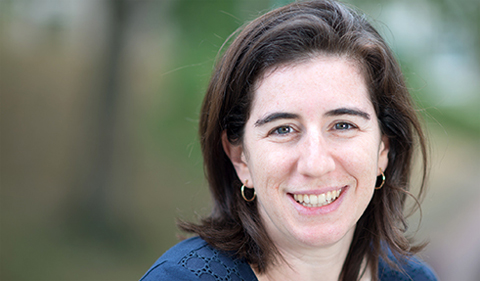Dr. Nicole Kaufman, Assistant Professor of Sociology, published two journal articles in June 2018 that examine aspects of NGOs and correctional systems.
“Gender and Community-Based Correctional Programs for Women” was published in Oxford Research Encyclopedia of Criminology and Criminal Justice, edited by H. Pontell. New York: Oxford University Press.
“In the contemporary era of ‘tough on crime’ policies and the globalized drug war, the number of women in the criminal justice system has increased across several countries. Women’s involvement in the system is not limited to imprisonment, however, and many criminalized women (those involved in the justice system with the assigned status of defendants, offenders, etc.) participate in community-based programs after serving sentences in prisons or jails or as an alternative to incarceration. Criminalized women encounter multiple interlocking forms of oppression based on sexuality, race and ethnicity, class, disability, immigration status, punishment status, and (importantly) gender. Gendered ideas and norms shape the way women are treated not only by the carceral state but also by community-based, nongovernmental organizations (NGOs),” Kaufman writes in her summary.
“Critical researchers have examined gender in organizational work with women outside of prisons, in community-based prisons run by NGOs, and in more traditional prisons. Researchers have examined practices at programs, the philosophies underpinning them, and their implications. This body of work shows that NGOs can perpetuate gendered exclusions and may expand the power of the carceral state. In their prescriptions for responding to the status quo, critical researchers make arguments along a spectrum from advocating more moderate social change, such as by creating more effective programs, to more radical social change, such as by ending community-based programs that perpetuate carceral control.”
“Nongovernmental organizations and postprison life: Examining the role of religion” was published in Punishment & Society.
Abstract: This article examines the relevance of religion for nongovernmental organizations that work with formerly incarcerated people. Despite the increased visibility of religious nongovernmental organizations working with criminalized people, research on the nongovernmental sector and criminal justice still largely focuses on secular organizations. This article argues for the conceptual importance of religion and its role shaping work in this sector, and draws from the sociology of religion to theorize the importance of discourses and practices in organizational settings. I present a typology identifying nongovernmental organizations’ religious approaches, which I developed using archival, interview, and observational data from 18 nongovernmental organizations in Wisconsin. I differentiate among nongovernmental organizations that I call secular, which stay away from religion, religiously inspired, which operate based on religious principles, and reciprocally religious, which hold expectations of religious practices from program participants. Moving beyond single-case studies enables a comparative analysis of the ideas and practices among actors that serve and seek to shape people leaving prison, whose work varies in terms of predominant denominations, assumptions about morality and sin, and relationships with churches and the medical profession. The results encourage further inquiry into what religious nongovernmental organizations do, why, and how, given the distinctive discursive and material resources and practices that they bring into work with criminalized people.


















Comments